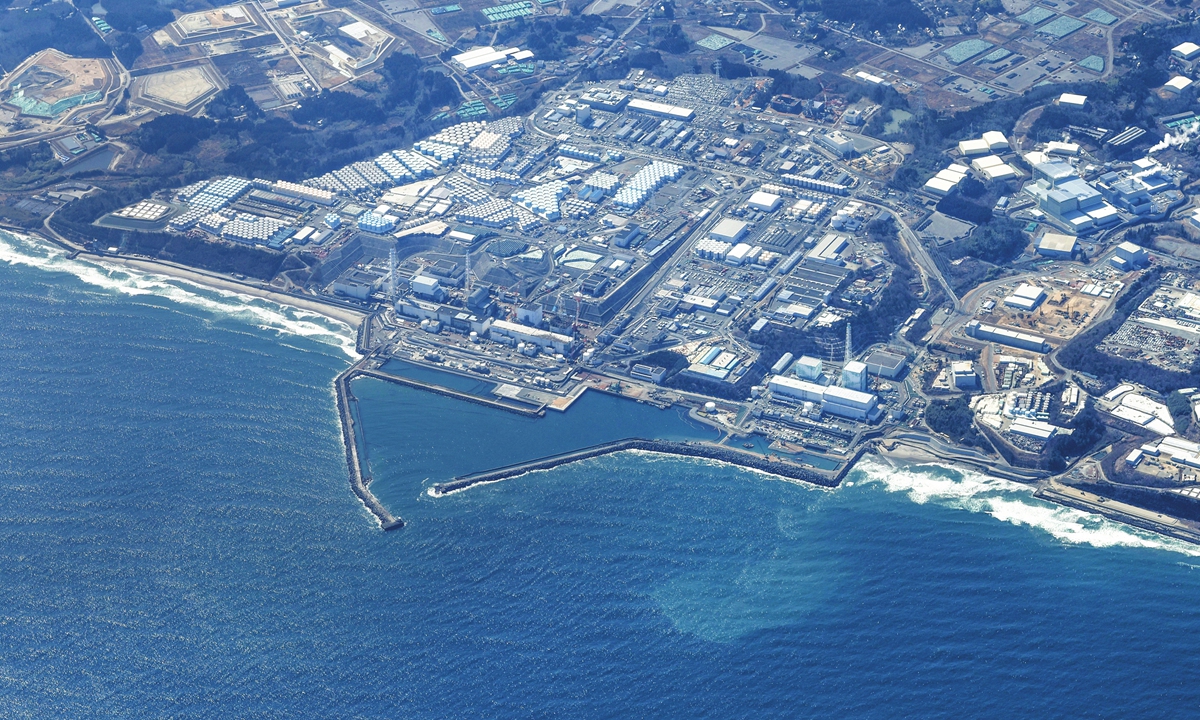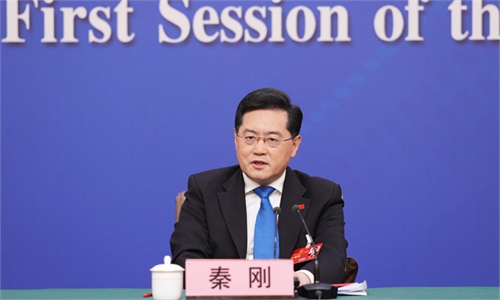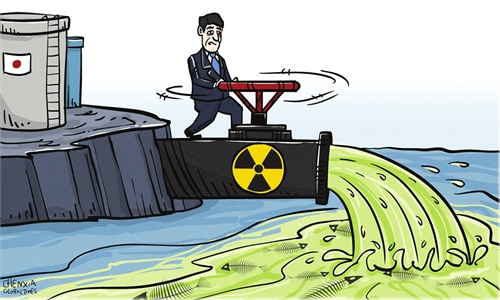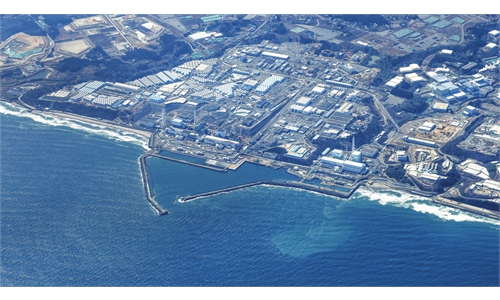Experts ask Japan to end nuclear wastewater discharge plan, warn of damage to less powerful countries

An aerial picture shows Fukushima No. 1 Nuclear Power Plant in Fukushima, Japan in February 2023. The decommissioning plant will soon mark the 12th anniversary of the unprecedented meltdown after the earthquake and tsunami in 2011. The most pressing issue at present is the discharge of treated water into the ocean, as the on-site storage capacity is approaching its limit. Photo: VCG
Japan's plan to dump Fukushima nuclear-contaminated wastewater into the ocean in spring 2023 has sparked widespread concerns and protests throughout Japan and the Pacific countries. A New Zealand-based sociologist has called on Japan to stop nuclear colonialism and targeting less geopolitically powerful countries, saying that countries bordering the Pacific Ocean, including New Zealand, should take legal action to stop the move.
Those who profit from nuclear technologies are responsible for managing the waste, rather than simply passing on the nuclear waste management responsibility to Indigenous peoples and others that are less geopolitically powerful, Dr Karly Burch, a sociology lecturer from the University of Auckland who has been studying the aftermath of the Fukushima Daiichi nuclear disaster for the past 12 years, told the Global Times on Wednesday.
Burch said Japan is very likely to go ahead with the discharge plan unless a neighboring country sues Japan at the International Tribunal for the Law of the Sea concerning the proposed radioactive wastewater plan.
She said that Japan is not legally permitted to cause such pollution in the high seas and there have been lawyers advocating for ending the discharge through a lawsuit, but no country has moved to take Japan to court as it has unfortunately become a sensitive geopolitical issue.
In April 2021, Japan decided to release more than one million tons of Fukushima nuclear-contaminated wastewater into the Pacific Ocean starting from spring in 2023. The wastewater is from the Tokyo Electric Power Company's (TEPCO's) Fukushima No. 1 nuclear power plant, which was severely damaged in the Great East Japan Earthquake on March 11 in 2011.
Burch said she's against the discharge because TEPCO's scientific studies mostly focus on the chemistry aspects of nuclear pollution, which is not sufficient for estimating the possible impact the radioactive materials will have upon complex biological, ecological, social, cultural and economic relations.
She shared examples of other scientists who felt the same. In December 2022, over 100 marine science laboratories authored a paper voicing scientific opposition to Japan's discharge plan. The Pacific Islands Forum Secretariat held a public seminar on January 18 where a panel of independent, globally respected scientific experts shared their assessment of TEPCO's wastewater discharge plan and stated that TEPCO's scientific studies were "incomplete, inadequate, and inconsistent."
Burch pointed out that TEPCO and the Japanese government are showing direct disregard for the sovereignty and self-determination of Pacific peoples, as they depend upon the ocean for their livelihoods and wellbeing . A lot of people in Japan also rely on fishing for their livelihoods and wellbeing.
The people, lands and waters in Pacific Island Countries have long been a target for the nuclear waste of other more geopolitically powerful nations such as the US and France since the 1940s.
Burch called for rigorous scientific studies that answer questions generated by community members in the Pacific and Japan, community-led consultation, and open public debate, which will provide the foundation for making better decisions about how to handle nuclear wastewater in the future
TEPCO has options to store the wastewater on land, which could give scientists time to conduct rigorous scientific studies that look into the complex effects of discharging nuclear-contaminated waste into the ocean, Burch said.
"However, TEPCO is hoping they can avoid responsibility for their nuclear waste by simply dumping the wastewater now and potentially measuring the impact later. Of course, that is a recipe for disaster because a company that could be held liable for damage would never want to conduct the rigorous scientific studies that might show such results," Burch said.



